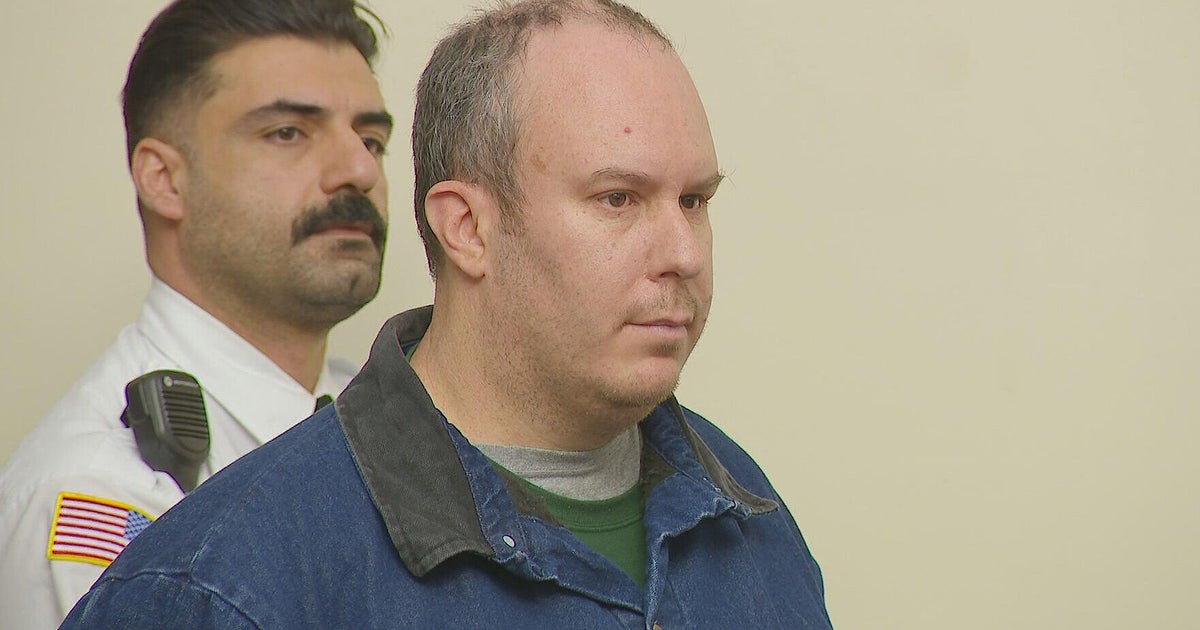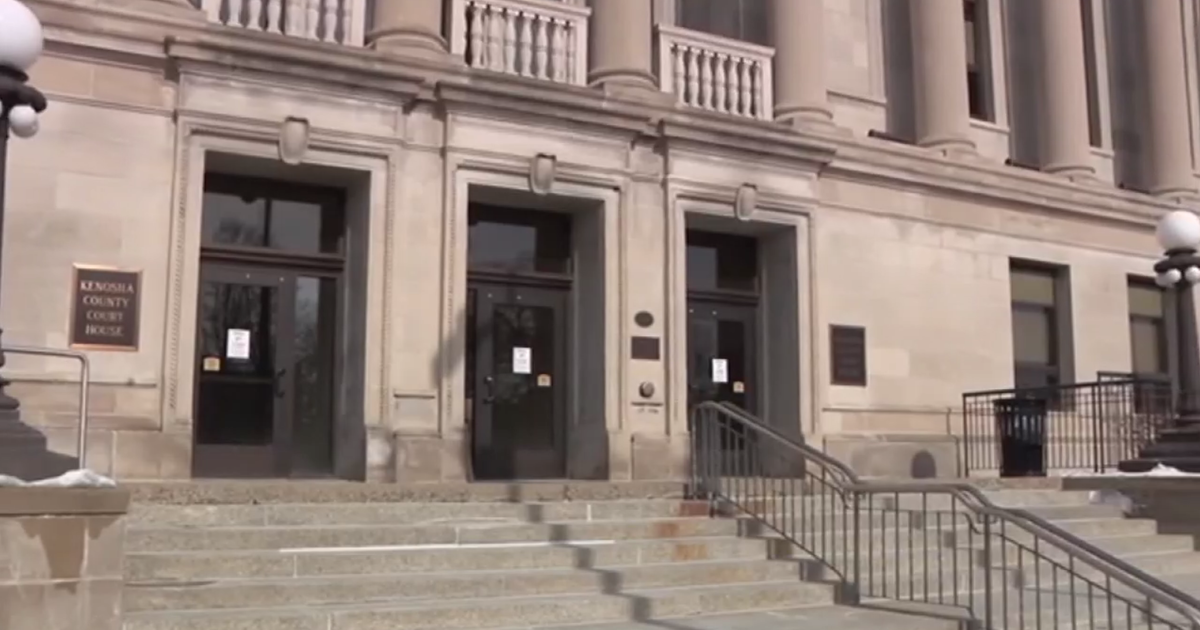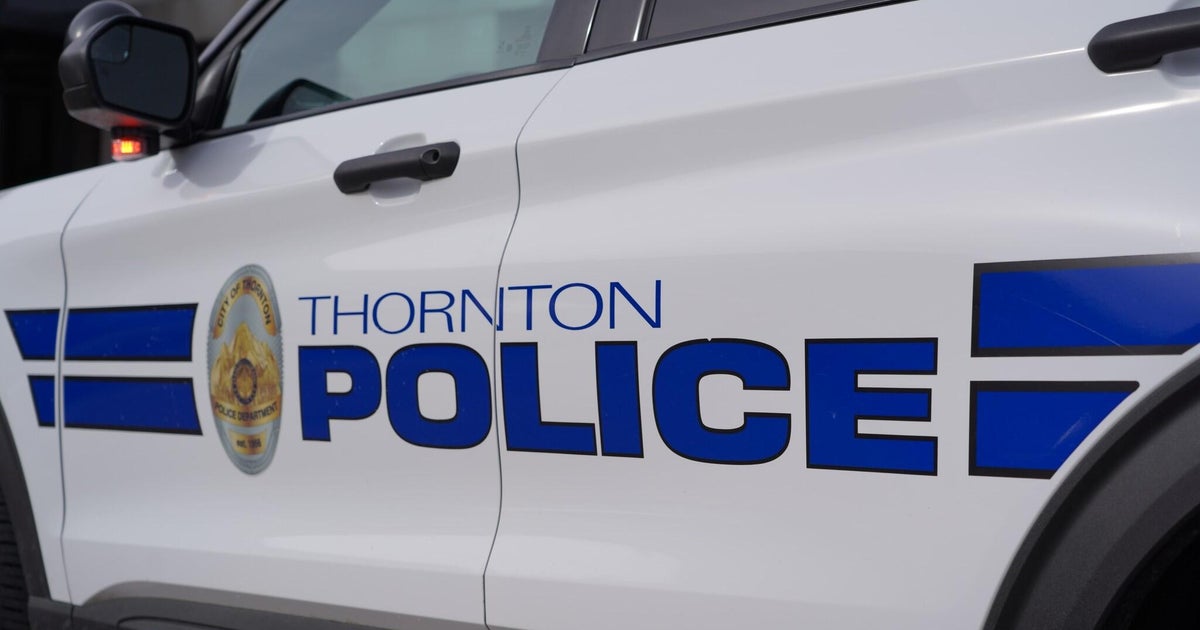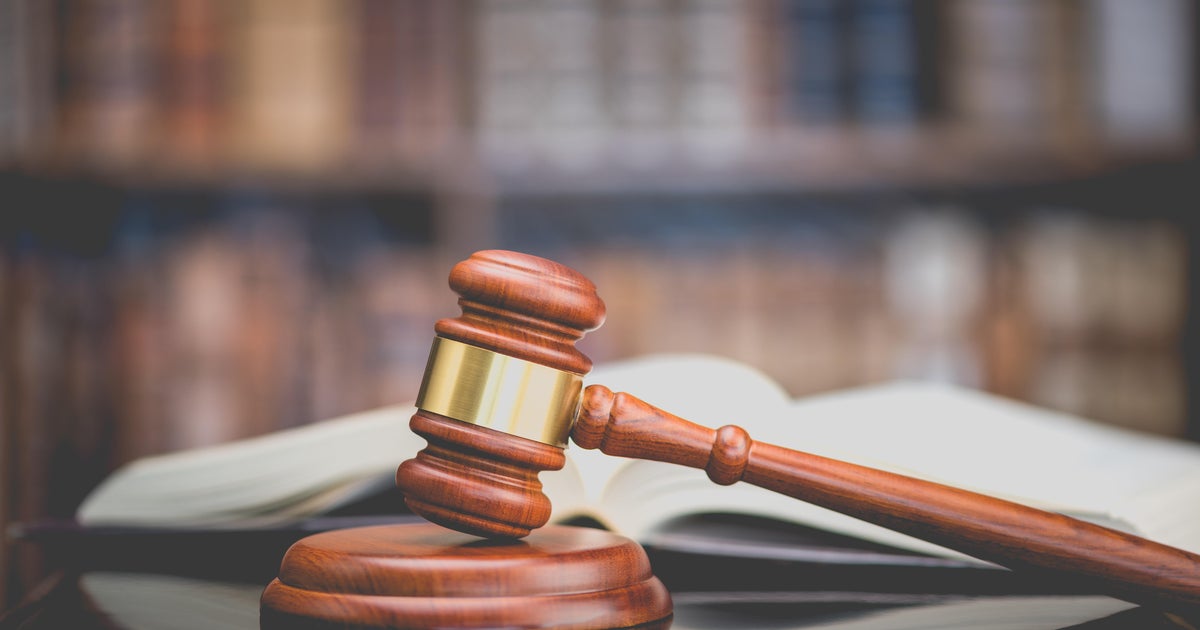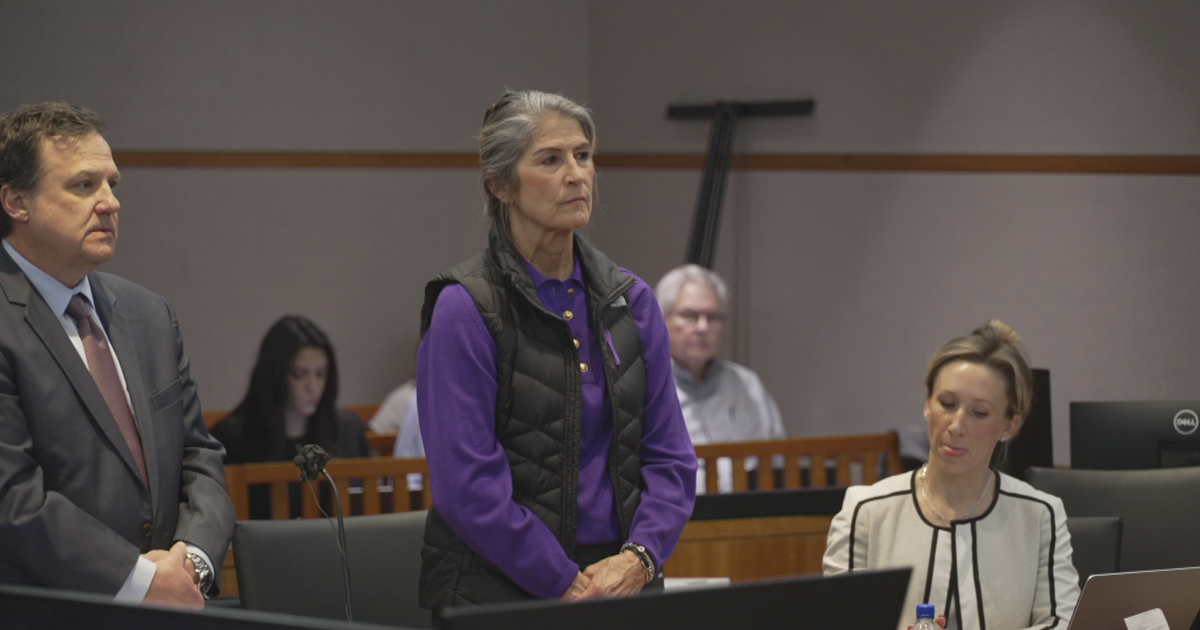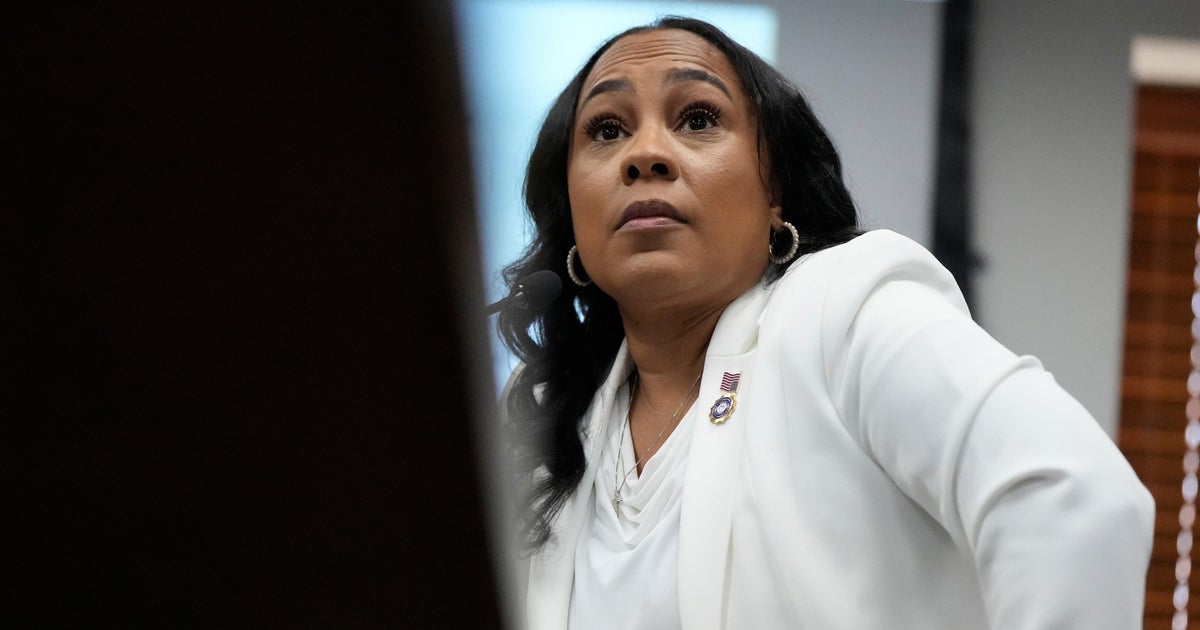Kyle Rittenhouse Defense Team Seeks Mistrial, Accusing Prosecutors Of 'Impropriety' While Questioning Rittenhouse On Stand
By Todd Feurer and Charlie De Mar
KENOSHA, Wis. (CBS) -- Kyle Rittenhouse's defense attorneys asked the judge to declare a mistrial on Wednesday, accusing prosecutors of asking improper questions of Rittenhouse while he was testifying in his own defense.
The defense accused prosecutors of intentionally trying to provoke a mistrial to avoid an acquittal, because the case is going badly for them, and they want to start over. Instead, the defense is seeking a mistrial "with prejudice," meaning prosecutors would be barred from trying Rittenhouse a second time.
Judge Bruce Schroeder did not immediately rule on the defense's request, saying he would give the prosecution a chance to respond.
At issue were questions prosecutors asked Rittenhouse about his silence after his arrest, and the propriety of using deadly force to protect private property.
Earlier, Schroeder had warned assistant district attorney Thomas Binger he was on the verge of using Rittenhouse's decision not to answer police questions against him at trial, noting Rittenhouse had the right to remain silent even after turning himself in to police.
But Binger insisted he was not planning going to question Rittenhouse about his refusal to speak to police, but only about his decision to talk to some media outlets after the shooting.
"His voluntary discussion to speak to the media has nothing to do with the Fifth Amendment. That is his own decision, and if he is going to pick and choose what he wants to talk about in those voluntary interviews with the media, then I think that's fair game. It doesn't implicate his Miranda rights, it doesn't implicate the Fifth Amendment," Binger said.
As for questions about whether Rittenhouse believed he could use deadly force to protect property, Binger said he was making a "good faith effort" to question Rittenhouse about an issue the judge had previously barred, and said he didn't mean to violate an order banning questions about whether Rittenhouse would shoot someone simply for damaging property, but a clearly furious Schroeder said, "I don't believe you."
"There better not be another incident," Schroeder said. "When you say you were acting on good faith, I don't believe you."
Schroeder said he would give prosecutors time to formally respond to the defense's bid for a mistrial before issuing a ruling.
Meantime, prosecutors resumed their cross-examination of Rittenhouse.
After more than a week of listening to testimony at his trial over shooting three people during the civil unrest in Kenosha, Wisconsin, last year, Rittenhouse took the stand in his own defense on Wednesday, telling jurors "I didn't do anything wrong. I defended myself."
Rittenhouse is on trial on charges of killing Joseph Rosenbaum and Anthony Huber and wounding Gaige Grosskreutz during unrest that erupted in the summer of 2020 over the shooting of Jacob Blake, a Black man, by a white Kenosha police officer.
Prosecutors have spent the past week trying to paint Rittenhouse as a reckless teenage vigilante who inserted himself in a situation where he didn't belong and tried to act like a police officer when he wasn't, as the defense has countered that Rittenhouse, then 17, was acting in self-defense when he shot Rosenbaum, Huber, and Grosskreutz.
Rittenhouse, now 18, was on the stand for six hours Wednesday. He testified Rosenbaum threatened to kill him twice while Rittenhouse was trying to protect a used car lot in Kenosha during the protests.
"The person that attacked me first threatened to kill me twice," Rittenhouse said. "He screamed, if I catch any of you f***ers alone, I'm going to f***ing kill you."
"He was walking with a steel chain, and he had a blue mask around his face. He was just mad about something," Rittenhouse added.
Rittenhouse also said he saw Rosenbaum lighting property on fire that night.
Rittenhouse testified that his friend, Dominick Black, called him later that night while Rittenhouse was at a gas station, asking him to return to the Car Source lot to help put out fires.
On the way to the Car Source lot, he came across Rosenbaum again.
"I didn't notice Mr. Rosenbaum until he came out from behind the car and ambushed me," he said.
Rittenhouse broke down crying as he began to describe his deadly encounter with Rosenbaum.
"Mr. Rosenbaum was now running from my right side, and I was cornered," he said, beginning to sob and hyperventilate, prompting the judge to call for a 10-minute break.
Rittenhouse's mother, Wendy, was also emotional in court.
After returning to the witness stand, Rittenhouse had regained his composure, and continued to describe his encounter with Rosenbaum.
Rittenhouse said Rosenbaum started to chase him, so he started running towards the Car Source lot.
He also said he heard another person with Rosenbaum shout "get him and kill him."
Rittenhouse testified he heard a gunshot behind him as Rosenbaum was catching up to him.
"I remember his hand on the barrel of my gun," Rittenhouse said, adding he shot Rosenbaum four times as Rosenbaum lunged at him.
Asked why he didn't just keep running, Rittenhouse said "there was no space for me to continue to run to."
Under cross-examination from prosecutors, Rittenhouse acknowledged Rosenbaum was not armed, and never touched him, but said, "he touched my gun."
Noting that Rittenhouse had a strap on his rifle, securing it to his body, Binger asked what risk Rosenbaum posed to prompt the shooting.
"If he would have taken my gun, he would have used it against me," Rittenhouse said. "I never wanted to shoot Mr. Rosenbaum. He was chasing me. I was alone. He threatened to kill me earlier. I didn't want to have to shoot him."
Rittenhouse testified, after shooting Rosenbaum, he went to see if he could help him, but someone else already was performing first aid.
"I was in shock, sort of," Rittenhouse said.
Pressed by prosecutors why he didn't stay to help Rosenbaum, he said a crowd came after him.
"I would have stayed, and did everything I could," he said.
He said people in the "mob" were saying, "Cranium him, get him, kill him."
He said he then called a friend to tell him he had shot someone, and decided to leave the scene to turn himself in to police.
"I didn't do anything wrong," he said. "I defended myself."
Asked by prosecutors why he called a friend rather than police, Rittenhouse said his friend Dominick Black was the first number on his phone.
"And that was quicker than three digits: 9-1-1?" Binger asked.
"I don't know" Rittenhouse said.
Rittenhouse said, as he was running down Sheridan Road in Kenosha, Huber approached him holding a skateboard "like a baseball bat" and hit him twice, knocking him to the ground.
He said another person, who he claimed was never identified, kicked him in the face, so he fired two shots at him.
"He would have stomped my face in if I didn't fire," Rittenhouse said.
Rittenhouse testified Huber then hit him again with his skateboard, so he shot Huber, and then lowered his weapon.
He said that's when Grosskreutz lunged at him "with his pistol pointed directly at my head."
Rittenhouse said Grosskreutz was close enough to him that their feet were touching.
"His pistol is in his hand, and then Mr. Grosskreutz looks at me, and that's when Mr. Grosskreutz brings his arm down," he testified. "His pistol is pointed at me, and I shoot him … once."
Prosecutors repeatedly asked Rittenhouse if he knowingly used deadly force when he shot each of the victims, and Rittenhouse repeatedly said he didn't want to kill anyone.
"Did you even care whether you killed him or not?" Binger asked.
"I didn't want to kill anybody," Rittenhouse said.
Binger also asked Rittenhouse to explain why Grosskreutz was more of a threat to him than he was to Grosskreutz.
"At this point he does not have his gun pointed at you, but you have your gun pointed at him," Binger asked. "Why is Gaige Grosskreutz a threat to kill you with a handgun in his hand, but you with an AR-15 in his hand are not a threat to him?"
"I've been attacked by several people, and he decided to come and point a gun at my head," Rittenhouse said. "He was moving at me with a gun in his hand."
Rittenhouse testified, after shooting Grosskreutz, he no longer saw him as a threat at that point, and another person who was there put his hands up and backed away, so he put his gun down, and continued walking toward nearby police officers to turn himself in.
"I put my hands up, and as I'm walking towards the police, I can't really hear anything," he said. "I remember I occasionally moved to put my rifle behind me ... so the police didn't see me as a threat."
Rittenhouse said he approached a police car to tell officers he'd just shot someone, but an officer told him "get the f*** back, or you're going to get pepper-sprayed. Go home. Go home. Go home."
So Rittenhouse went back to the Car Source lot, where someone let him inside.
"I'm in shock, I don't really remember what was happening in there," he said. "I was freaking out."
Rittenhouse said, because the Kenosha police station was blocked off by barricades, he decided to go home to Antioch, and then he and his mother went to the Antioch police station so he could turn himself in.
He said he was allowed to wait in the police station without being handcuffed until two detectives came to question him.
"I was vomiting and having panic attacks," he said.
During cross-examination, prosecutors repeatedly asked Rittenhouse if he intentionally used deadly force, and was trying to kill the people he shot
"I didn't intend to kill them. I intended to stop the people who were attacking me. I did what I had to do to stop them from attacking me," Rittenhouse testified.
As he was questioning Rittenhouse, Binger suggested that Rittenhouse was tailoring his testimony on the witness stand only after watching videos of the shootings and listening to testimony of other witnesses, prompting an objection from Rittenhouse's defense team.
The judge warned Binger he was on the verge of using Rittenhouse's decision not to answer police questions against him at trial, noting Rittenhouse had the right to remain silent even after turning himself in to police.
"This is a grave constitutional violation for you to talk about the defendant's right to silence - you are right on the borderline and you might be over, but this has got to stop," he said.
Binger also repeatedly asked Rittenhouse if he agreed he isn't allowed to use deadly force to protect property.
"I wasn't using deadly force to protect the property. I was using deadly force to protect myself," Rittenhouse testified.
"But yet you have previously indicated that you wished you had your AR-15 to protect someone else's property, correct?" Binger asked, prompting an objection from Rittenhouse's attorneys.
After the judge sent the jury out of the courtroom, Binger said he was seeking to introduce evidence of a video from Aug. 10, 2020, in which Rittenhouse said he wished he had a rifle to shoot people he believed were shoplifting.
Judge Bruce Schroeder had previously ruled prosecutors could not show that video at trial, but Binger said he believed Rittenhouse's testimony opened the door to present that evidence to the jury, prompting an furious response from Schroeder.
The judge said, at a minimum, Binger should have asked him to reconsider his ruling on that video before questioning Rittenhouse about it. He said nothing Rittenhouse said on the stand has made that video relevant to his actions on the night of the shootings.
"There's nothing in your case that suggests the defendant was lying in wait to shoot somebody," Schroeder said, saying the shootings that night were instead "instantaneous actions" that bore no similarity to his comments about wanting to shoot shoplifters.
Defense attorneys said they believed Binger was trying to provoke a mistrial, and told the judge if Binger crossed the line again, they would demand a mistrial "with prejudice," meaning prosecutors could not try Rittenhouse a second time.
Rittenhouse earlier testified that he went to Kenosha on Aug. 25, 2020, after seeing videos online of the widespread unrest in Kenosha prompted by the police shooting of Jacob Blake.
"I saw videos on social media, on Facebook live streams, TikTok. I saw the CarSource being burned down," he said. "I saw a police officer get assaulted. He had a brick thrown at his head."
Rittenhouse said he spent part of the morning of the shootings cleaning up graffiti at a local high school.
He also described how he and a friend, Dominick Black spoke to the owners of a used car lot they guarded later that night. He said the owner of the Car Source lot gave him permission to be there, and that they were thankful the armed group was there to protect the property.
Rittenhouse, who said he was a firefighter/EMT cadet, said he bought two rifle slings that night, so he could easily treat people without having to put down his gun.
He said he also brought a bulletproof vest, which he said was given to him by the Grayslake Police Department, but gave it to a friend after arriving in Kenosha.
Rittenhouse said he helped administer first aid to a woman who injured her ankle, and a man who got sick from a homemade "chemical bomb" that had been tossed near the car lot.
He said he was trained in first aid, and although he told some people that night he was a certified EMT, Rittenhouse acknowledged he is not.
As testimony wrapped up late Wednesday, Judge Schroeder said the trial could wrap up early next week.
